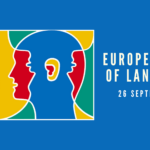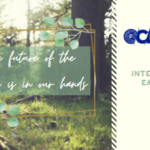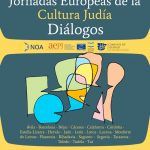MusIntegrACTION is an Erasmus+ project focused on musical educational excellence. It is based on a strategic partnership coordinated by the Conservatory of Music of Murcia and and co-funded by the European Union’s Erasmus+ Programme, which was selected in July 2018 by the Spanish Service for the Internationalisation of Education (SEPIE). This project brings together the efforts of seven different institutions in the education sector to highlight the social and educational value of Europe’s cultural heritage, while raising the profile of the teaching professions and promoting high quality and innovative work in music education.
 Background
Background
The European Union is the world’s leading cultural power, and the tradition of European classical music is one of the most significant elements of our common cultural heritage. As educational institutions, conservatories play an essential role in transmitting our European cultural heritage, but they are not exempt from the profound changes that our society is undergoing. These changes affect not only the ways in which we access culture (thanks, for example, to new technological platforms for disseminating content), but also the way in which culture, and in particular music, is lived, appreciated, learned and created by the younger generations, who give it a new value.
Even though conservatories are spaces where the weight of tradition is fundamental, methodological innovation in the field of education is essential. Music education can make this important part of our cultural heritage reach wider layers of our society as European citizens.
Under the title of the project
In the title of the Project, we can see “transforming music education institutions to ensure their role as transmitters of European cultural heritage”, which describe their interest in responding to this new situation through innovation. This strategic partnership, however, goes beyond this transformative educational purpose. The acronym MusIntegrACTION shows this idea, by bringing together the terms music, integration and action.
“United in Diversity”
Conservatories, like any other educational institution, must become agents of change, and contribute to the creation of more cohesive human groups where tolerance and the recognition of the differences, whose value is an element that enriches our society, are fundamental. This interest in learning from others and their distinctive characteristics is already evident in the very diverse institutions that are part of the Project. These institutions which are not only conservatories but also secondary schools, are committed to the dissemination of Europe’s musical and cultural heritage.
Furthermore, the Project includes a programme of activities based on the cultural heritage of the participating regions. This programme highlights among the many differences, the common cultural elements so that the participants in this experience understand, from practical experience, our European motto “United in Diversity”.
Participation in the project
The participant institutions are from Germany (the Hochschule für Musik “Franz Liszt” and the Musikgymnasium Schloss Belvedere in Weimar), Spain (Conservatorio de Música de Murcia and IES El Carmen in Murcia), Italy (Conservatorio di Musica “F. A. Bonporti” and Liceo Musicale-Coreutico “F. A. Bonporti” in Trento) and Portugal (Escola de Música do Conservatório Nacional in Lisbon). All these institutions are gathered around the heritage of European cultured music, and have designed a roadmap which, since the project was launched in September 2018, has involved the direct participation of more than 90 teachers and 70 students. The teachers have taken part in four meetings of the teaching staff in which they have discussed the target groups of music education, the pedagogical innovations in the field of music teaching, and the integration of general education with specifically musical education in order to make both types of study compatible, amongst the others.
The students, as well, have enthusiastically participated in meetings in which the topics of cultural heritage, the essential characteristics of the participating schools which could be taken as examples of good practice, or the value of educational institutions to transform the environment through social collaboration activities such as benefit concerts and learning programmes aimed at citizens from disadvantaged social strata have been discussed. In addition, students had the opportunity to showcase their artistic activity abroad and to be taught by prestigious teachers in the host institutions.
Finally, the project has benefited not only the direct participants in the project by being selected for the mobility experiences, but also the whole educational community of each of the partner institutions thanks to the multiple dissemination activities. Likewise, a large number of citizens could attend, as an audience, the different concerts and activities carried out in the regions where the educational centres that form this strategic partnership are based. Moreover, citizens will be able to continue doing so during the academic year 2020-2021 in which it will be held the last meeting of the students in the third quarter, in the city of Weimar, and the final activities of the project, which include a series of concerts in the four participating countries whose proceeds will be destined to non-profit social organisations, as well as temporary exhibitions showing the results of the project.
Connect
⇢ Coordinated by the Conservatory of Music of Murcia (Spain)
⇢ Funded under Erasmus+ KA201
⇢ Project website: https://www.musintegraction.com/
⇢ Twitter account: https://twitter.com/musintegraccion







Leave a Reply